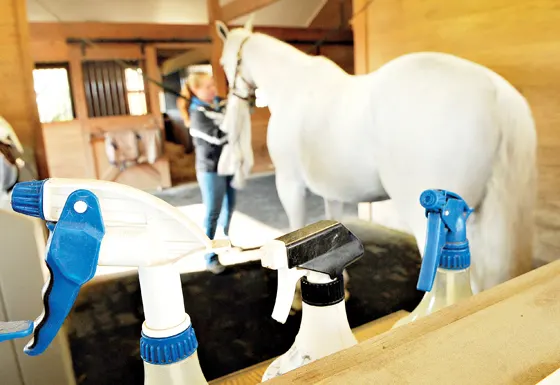Protesting someone’s amateur status requires more than a little dedication. The protester bears the burden of proof and is responsible for gathering and submitting all the evidence proving the violation. Plus, there’s a financial commitment: members pay a $200 deposit and non-members pay $300, returned if the protest is upheld.
“Especially if you’re protesting an amateur status, you need to have proof,” said Beverly Bedard, co-chairman of the USEF Steward-Technical Delegate Committee. “ ‘Knowing for a fact’ won’t work. You need to witness a lesson, have copies of checks, have a copy of the ad in the magazine or from the Internet [advertising training].”
If you’re considering filing a protest, check out GR603 for specific instructions.
You must fill out a protest form (available at www.usef.org) being sure to identify exactly which rule is being violated and submit the form, physical evidence and payment to the steward at the horse show. Bedard recommended you speak to the steward at the competition first so he or she can make sure you have everything you need.
While it’s easiest to file at the horse show where the accused is showing, it’s not absolutely necessary. A protest should be filed within 10 business days of the competition where the individual was violating his or her status, although as long as you can prove to the Hearing Committee that the request is filed in a “timely manner” the USEF will accept it.
“We do also encourage everyone to file the protest in connection with a USEF-licensed competition where the person is in violation of their status,” said Emily Patrick, director of the Regulation Department at the USEF. “However, we understand that if they are violating their amateur status at one show then they are in continuous violation, and it may be possible for a protest to be filed at any time during the competition year.”
ADVERTISEMENT
The accused can opt to have the USEF Executive Director review his or her case, with the hope of a dismissal (rare) or a plea bargain (fairly common in amateur violation cases). Otherwise, or if the Executive Director decides not to intervene, the case proceeds to the USEF Hearing Committee, which will hold a hearing and rule on the protest.
The Hearing Committee may issue a fine and/or suspend a member it finds in violation, in addition to stripping away any prize money and amateur status. All in all, the process usually takes between four to five months, and the accused may continue to show as an amateur at this time if he or she chooses.
Bedard recalled one situation where an exhibitor surrendered amateur status on the spot when she explained that there was another competitor ready to hand in a completed protest.
“Without mentioning any names, I told her, ‘This is what I’m hearing, and if it’s true you should relinquish your status immediately,’ ” she recalled. “It’s better to give up your amateur card by yourself if you truly are in violation.”
Read more about how the amateur rule works in the article “Confused About Amateur Rules?“















